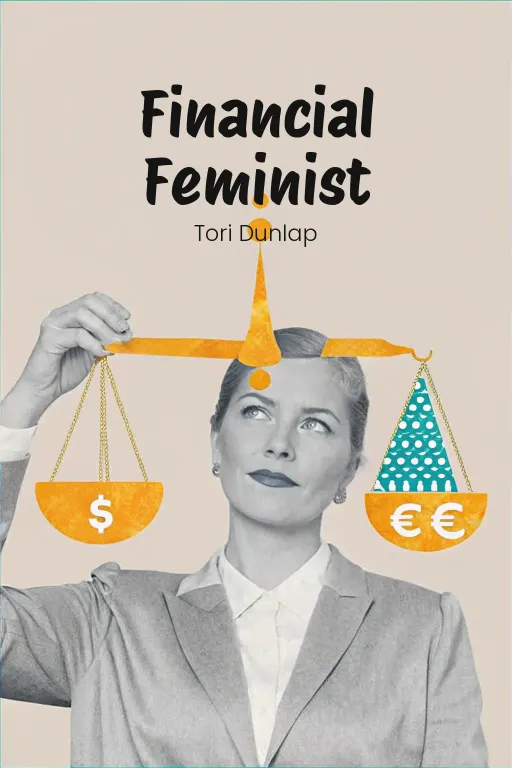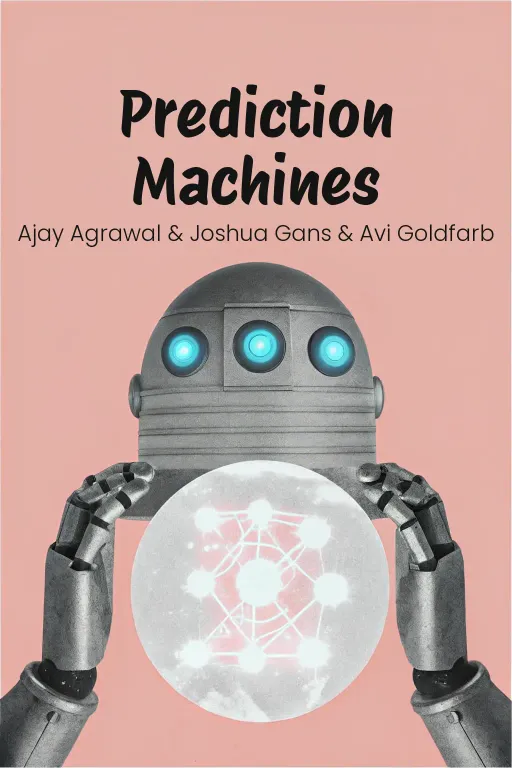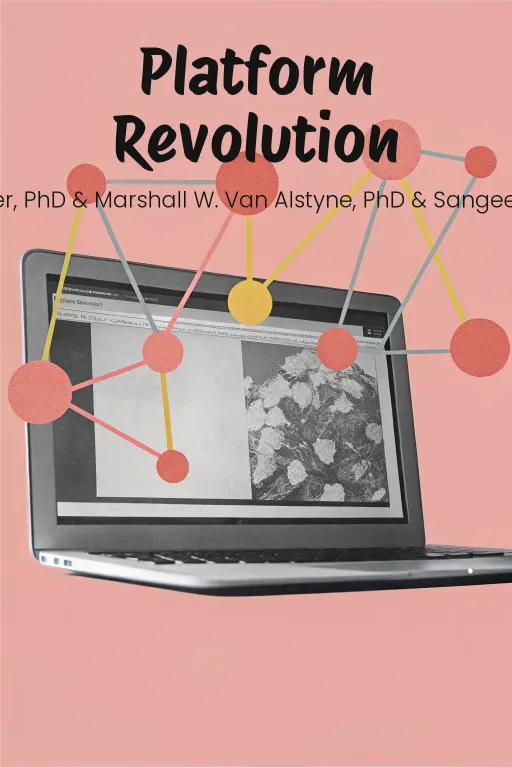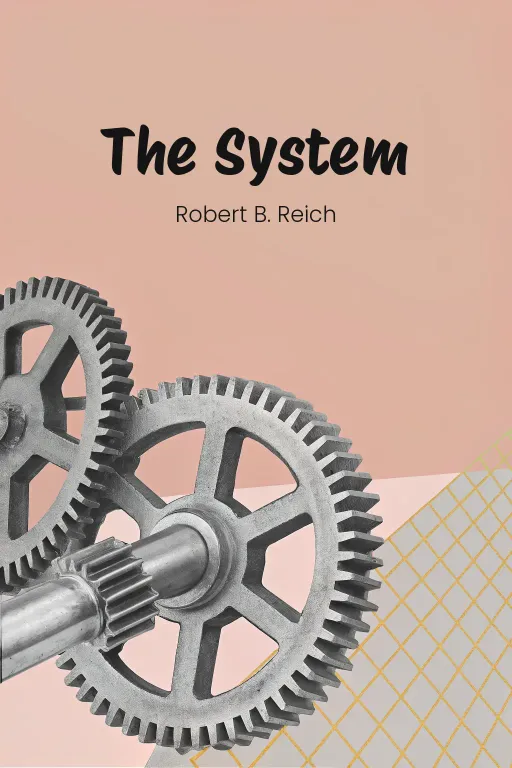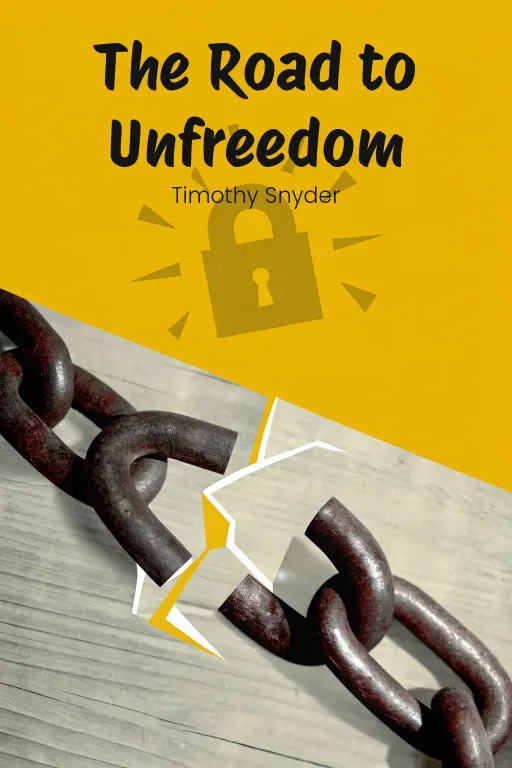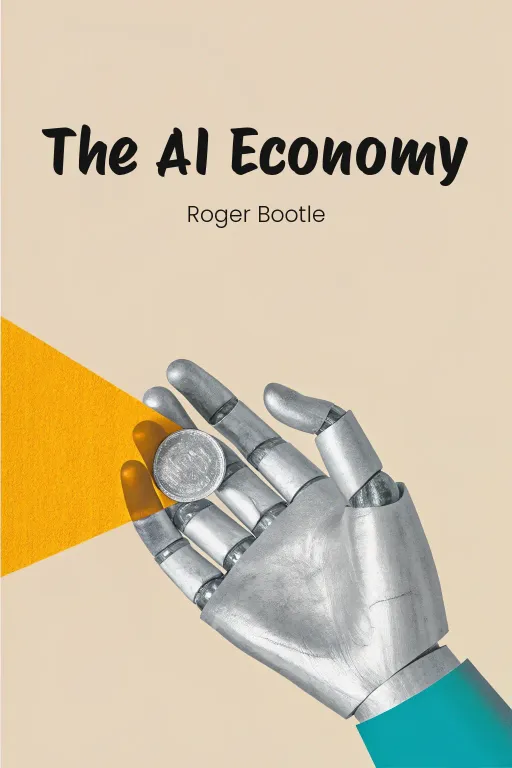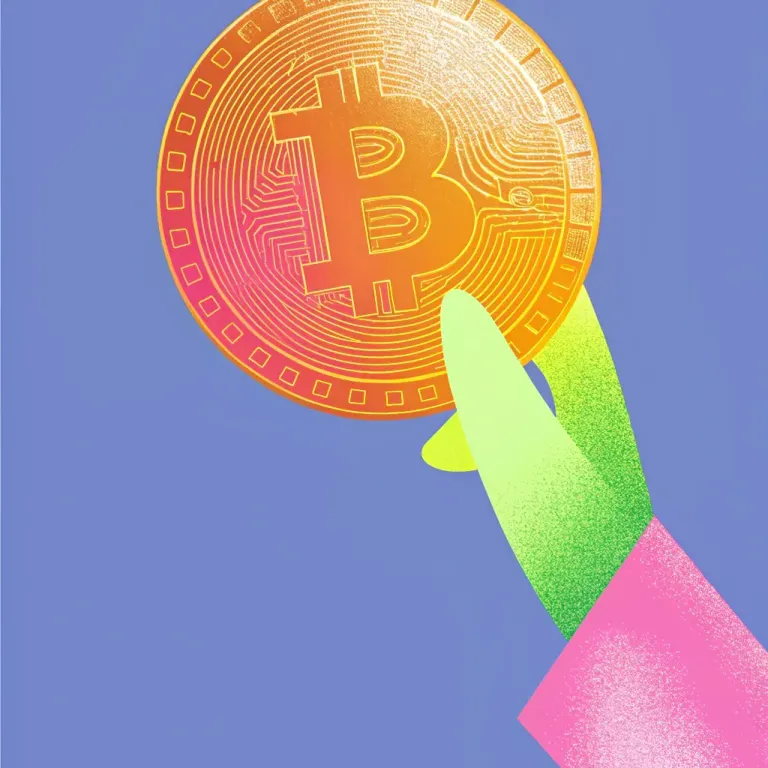
Bitcoin: Beyond the Hype
Podcast by Let's Talk Money with Sophia and Daniel
How Bitcoin and Digital Money Are Challenging the Global Economic Order
Bitcoin: Beyond the Hype
Part 1
Daniel: Hey everyone, welcome! Today we're diving deep into something that's really changing how the world thinks about money. I'll kick things off: when was the last time you actually stopped to consider where your money comes from, or who's really in control of it? Sophia: Yeah, good point, Daniel. Most of us just assume the banks and governments have it all handled. But let's be honest, how many times has that trust gone wrong? Economic crashes, bailouts... the system's not exactly perfect, is it? Daniel: Exactly. And that's where Bitcoin comes into play. It's not just another digital currency; it's a whole new way of thinking about money: decentralized, transparent, and designed to challenge the old system. Sophia: Sure, but with all the hype and controversy, how do we tell what's actually revolutionary from just plain chaos? Daniel: That's exactly what we're going to explore today. We'll unpack Bitcoin's journey, starting with its roots in distrust of the financial system and how it's grown into a movement based on some pretty groundbreaking tech and a “really” passionate community. Sophia: We're also going to talk about whether Bitcoin can truly reshape global finance, or if it's just going to stay this kind of volatile experiment. And, of course, we can't ignore the challenges – the regulatory fights, getting people to actually use it, and those trust issues. Daniel: It's a story about the past, present, and the future of money. How it's evolved, how Bitcoin challenges everything we thought we knew, and what the future of finance might look like. So, let's get started!
Historical Context and Emergence of Bitcoin
Part 2
Daniel: So, let’s zoom out for a second and ground ourselves in the history of money. To really get Bitcoin, we need to understand not only how forms of money have evolved, but also the trust, or honestly, the lack of it, that underpins them. Sophia: Exactly, because isn’t money essentially humanity’s oldest social contract? We all agree that this thing—be it barley, seashells, or metal coins—has value, even though it’s just… stuff. But that agreement falls apart if someone breaks the rules, right? Daniel: Precisely. Think back to Mesopotamia, around 3000 B.C., where they used silver and barley as currency. Sounds ridiculously simple now, but that leap from simple bartering to currency? Game-changing. It allowed economies to grow, trade to expand, and societies to organize. But… the questions about trust, they began there. Sophia: A battle we’re still fighting today, I imagine? The trust issues didn’t just disappear when we swapped barley for banknotes. It’s like we just traded one kind of trust for another – trusting that whoever's stamping the coin or printing the cash isn’t cooking the books. Daniel: Exactly! That’s the constant tension in the history of money. The institutions responsible for issuing and validating currency have often proven to be… well, shaky. Hyperinflation is a prime example—a real trust-killer. Think of the Weimar Republic in the 1920s... the government was drowning in post-war debt and just printed trillions of marks, turning the currency into toilet paper. People needed wheelbarrows full of cash just to buy bread. Sophia: Wheelbarrows for bread! Talk about a visual representation of losing faith in your currency. And then there's Zimbabwe in the early 2000s, same story, different setting. When that trust evaporates, your money is essentially Monopoly money. Daniel: And those aren’t isolated cases, Sophia. Anytime you have systems dependent on centralized control, trust is vulnerable. Now, fast forward to 2008—it wasn’t just a blip; it was a financial tsunami. The global financial crisis laid bare the flaws in the traditional banking system. Sophia: Ah, the crash... Trust didn’t just erode; it completely crumbled. Banks were playing fast and loose with subprime mortgages, basically gambling with everyone else’s money. And when that house of cards collapsed, guess who footed the bill? You got it – the taxpayers. Daniel: The classic "privatize the gains, socialize the losses" maneuver. People were beyond angry—not just at specific banks, but at the entire system that enabled it. It was precisely in that moment of disillusionment that Bitcoin emerged. Sophia: And cue Satoshi Nakamoto, stage left! The timing was either perfect or terrible, depending on your perspective. Daniel: Satoshi's timing was deliberate, though. In January 2009, they mined the Genesis Block—the very first Bitcoin block—and embedded a message: a headline from The Times: "Chancellor on brink of second bailout for banks." That wasn't just a timestamp; it was a statement. Nakamoto was saying, "Here's an alternative to the failing system you're witnessing right now." Sophia: Right, and the alternative wasn't just some academic exercise. Bitcoin eliminates the need to trust banks or governments by making the system itself—with its decentralized ledger and blockchain—the trusted party. No middlemen, no central authority, just cryptographic proof. Daniel: That’s what makes Bitcoin groundbreaking. The blockchain is the backbone—a distributed ledger replicated across thousands of computers globally. Transactions aren’t verified by some bank employee, but by miners who solve complex computational problems through a process called proof-of-work. Once a transaction is validated and recorded on the blockchain, it’s immutable. No revisions, no fraud. Sophia: Sounds airtight. But Daniel, isn’t that level of resource intensity… a bit of a double-edged sword? I mean, proof-of-work is fantastic for preventing tampering, but at what environmental cost? Bitcoin mining consumes more energy than some entire countries. Daniel: That's a valid point, and it's a major criticism of Bitcoin. We can dig into that a bit later. But for now, it’s crucial to understand this new trust model. Bitcoin replaces institutional trust with cryptographic algorithms. It’s not exactly trust-less—you’re trusting the code and network instead of specific people and banks. Sophia: In those early days though, people weren't exactly lining up to deposit their life savings into Bitcoin, were they? The skepticism was palpable. There were scaling issues, usability problems, and, of course, the fact that its creator was essentially a ghost. Daniel: Immense challenges, definitely. James A. Donald, an early critic, questioned whether Bitcoin could even scale to a global level, which were legitimate concerns given the network's infancy. But even then, Satoshi and the cypherpunk community persevered, refining and defending the system. Sophia: So, here’s the million-dollar—or should I say, million-bitcoin—question: Is this just rebellion for the sake of rebellion, or a genuine attempt at reshaping the financial world? Daniel: It's both, Sophia. Bitcoin emerged as a critique of centralized failures, absolutely. But it's also deeply visionary. The goal is not just to reject the old ways, but to reimagine what money can be in a digital, global era. Sophia: That’s a pretty grand ambition, Daniel. Even if Bitcoin does represent a philosophical shift, turning that philosophy into widespread acceptance is a whole different ballgame.
Technological Innovations and Community Growth
Part 3
Daniel: Exactly, Sophia. And that “really” sets the stage for us to delve into the tech and the ideas that made Bitcoin possible. If the last part explained why Bitcoin was almost inevitable, this part focuses on how it actually managed to become a reality and the community that's shaped it. Sophia: “Why” to “how,” got it. Daniel, let's get into the mechanics. Explain the inner workings of this Bitcoin revolution, and maybe more importantly, why hasn't it all fallen apart yet? Daniel: So, at the core of Bitcoin is blockchain technology. Think of it as this openly accessible, digital record book, copied across thousands of computers – these are called nodes – all over the world. Anyone can check it. Each time a transaction occurs, it's verified and then added to this record, creating a chain of blocks, hence, “blockchain.” Sophia: Okay, so no need for armies of bean counters with green visors. But what's stopping someone from just altering the ledger? Could they just, you know, “hack” themselves a fortune? Daniel: That's where proof-of-work, or PoW, comes in – it's Bitcoin’s key defense mechanism. For a new block to be added, miners need to solve a “really” complex mathematical puzzle. This requires significant computing power, which translates to real energy costs. If someone wanted to rewrite history—say, to fraudulently give themselves a bunch of bitcoins—they’d have to redo all the puzzles for every block since that point, across this huge network. The resources you'd need? Astronomical! It becomes economically pointless to even try. Sophia: So it's not tamper-proof because it's heavily guarded, but because trying to tamper is just too expensive. Smart. It's like trying to fix a poker game where the effort isn't worth the reward. Daniel: Exactly! This decentralized validation system removes the need for a central authority completely while maintaining trust. You're not trusting a bank or a government; you're trusting math, physics, and basically permanent records. Sophia: Sure, I'll trust the math… in theory. But how does all this translate into real-world use? Because initially, wasn’t this seriously cutting-edge stuff? Who was going to entrust their money to something that only a handful of cryptography PhDs understood? Daniel: That’s where the early adopters were crucial. The cypherpunk movement—which championed privacy and decentralized systems—laid the cultural groundwork. Then you had pioneers like Hal Finney, who wasn't just an adopter but a contributor to Bitcoin's code. He even received the very first Bitcoin transaction from Satoshi Nakamoto himself. Sophia: But why were people like Finney so invested? Was it simply tech curiosity, or did they foresee the bigger potential? Daniel: It was both, “really”. These were people who had long yearned for alternatives to traditional finance, seeing those systems fail time and time again. Finney actively tested Bitcoin, debugging vulnerabilities that could have killed it in its infancy. His involvement showed this rare mix of idealism and practicality that “really” defined the Bitcoin community early on. Sophia: And speaking of practicality, wasn’t it someone’s pizza order that kinda put Bitcoin on the map? Daniel: Ah, yes, the legendary pizza transaction! In May 2010, Laszlo Hanyecz spent 10,000 bitcoins for two pizzas. At that time, Bitcoin was essentially worthless as a currency. He essentially proved that Bitcoin could be used in the real world as money. Sophia: Worthless then. If only he’d HODL-ed instead of giving in to his pizza craving! That would be worth tens of millions now. But that one transaction “really” sent a message: this isn’t just a fun side project; this is actually viable. Daniel: Absolutely. Transactions like that fueled the community to start imagining new uses for Bitcoin beyond just code and theory. But it wasn't just about the tech—it was also about the culture. The Bitcoin community developed its own identity, with its own humor, its own sense of defiance, and its own vision. You mentioned “HODL,” right? That's a perfect example—a misspelling of "hold" from a forum post that became the battle cry for believers to stick with their Bitcoin, no matter how crazy the price swings. Sophia: It's fascinating. Bitcoin isn't just a technology; it's almost a cultural phenomenon. But every revolution needs some kind of… well, structure. What happened when Satoshi stepped away? Daniel: That’s a great point. And Satoshi stepping away was, I think, kind of the point. The system wasn’t meant to depend on one person; it was meant to become a collaborative, decentralized thing. When Satoshi disappeared, developers like Gavin Andresen stepped up. He worked on making Bitcoin more user-friendly and easier to use. He created tools for managing wallets, so regular folks, not just tech wizards, could actually use Bitcoin. Sophia: There’s a certain poetry to it, isn’t there? A currency designed to distribute power needed a distributed community to keep it going. Daniel: Exactly! That’s why, even with all the ups and downs, Bitcoin didn’t just disappear - it adapted. The open-source nature encouraged participation from all over the globe. Coders improved it, miners optimized it, and enthusiasts promoted it. And with each contribution, Bitcoin became less of some fringe experiment and more of a growing movement. One built on shared effort and innovation, not borders or governments. Sophia: From internet funny money to pizza to potential global financial disruptor. Daniel, this whole narrative gives the phrase "grassroots movement" a high-tech edge, doesn’t it? Daniel: It really does. Bitcoin’s success isn’t just about the algorithms and the code; it’s about people uniting behind a shared desire to shake up the status quo.
Global Impact and Future Challenges
Part 4
Daniel: So, now that we understand the technology and the community driving Bitcoin, we can “really” dive into its practical applications and global impact. And Sophia, honestly, this is where things get “really” fascinating. We’re talking about how Bitcoin is moving beyond theory and actually reshaping economies and challenging established systems worldwide. Sophia: “Reshaping” is a strong word, though, Daniel. I mean, for all its potential, can Bitcoin “really” change something as massive as the global financial system? Let’s break it down – what are the real opportunities here, and what obstacles are standing in the way? Daniel: Okay, fair enough. I see Bitcoin impacting the world in three key areas. First, it’s offering financial inclusion to people that traditional systems overlook. Second, it’s uniquely impacting regional economies. And third, it's forcing regulators and innovators to “really” consider the balance between decentralization and legitimacy. Sophia: Financial inclusion definitely resonates with people. But let's be real, 2.5 billion adults without bank accounts – that’s hardly an ideal market for a high-tech digital currency, right? So, how is Bitcoin even helping people who don't have access to basic banking? Daniel: It's actually more relevant than you might think. Afghanistan, for instance, faces economic instability combined with cultural challenges, especially for women trying to access traditional banking. Bitcoin is starting to bridge the gap. There’s a platform called 37Coins that allows users to transfer Bitcoin via text message using basic mobile phones. Take Fatima, an Afghan woman whose husband works abroad. Instead of using risky physical transfers or middlemen, he sends her Bitcoin. It’s secure, direct, and avoids corrupt intermediaries. Sophia: I love that the solution is just text messaging – something as simple as SMS solving a complex problem. But, being skeptical here, mobile phones are common, but internet access in these areas is often unreliable at best. How do they deal with that hurdle? Daniel: Well, that's where the early innovators get creative. Solutions like 37Coins are designed to work offline. The text message effectively bridges that gap, allowing users to interact with Bitcoin even without full internet access. Of course, there're still challenges, but compare it to the barriers of traditional banking, and it’s a major step forward. Sophia: Okay, valid point. But let’s pivot to Argentina; those challenges are different. We’re not talking about rural underdevelopment; it's hyperinflation and a government that's tightening its grip on the financial system. How does Bitcoin even fit into that mess? Daniel: Argentina is fascinating. Years of financial mismanagement have left citizens struggling with inflation and capital controls. An entrepreneur named Mike Abridello, who runs a boutique hotel in Buenos Aires, started using Bitcoin to fight the volatility of their currency. Instead of paying huge transaction fees or watching savings vanish due to inflation, he turned to Bitcoin. Platforms like BitPagos, which allow businesses to transact in Bitcoin, offer a stable, efficient alternative. Bitcoin allows entrepreneurs like Abridello to avoid capital controls and maintain stable cash flow. Sophia: Right, so in Argentina, it's less about access to banking and more about protecting your assets from dissolving. But honestly, are we “really” solving the core issue, or is this just a Band-Aid solution? Daniel: That’s a valid point, Sophia. Bitcoin doesn’t directly solve corruption or inflation – those are systemic problems. But it does give people a way to survive and even thrive within those broken systems. It’s not about replacing their economy overnight; it's about creating new lifelines where the old ones have failed. Sophia: Okay, let's zoom out again. The Caribbean is another interesting region: fragmented markets, expensive transaction fees, and banking systems that, well, aren’t exactly models of efficiency. How is Bitcoin making a difference there? Daniel: Perfect example. In Barbados, an entrepreneur named Gabriel Abed developed a Bitcoin platform called Bitt, designed to address the inefficiencies of traditional finance. Look at Jamal Ifill, a glass artist. He struggled with the high costs of selling internationally because of remittance fees and complicated banking. With Bitt, Bitcoin allows him to transact directly with clients across borders, reducing fees and delays. Sophia: Okay, but let me push back a bit. These are great niche cases – Afghanistan, Argentina, Barbados…but how do you scale this? As inspiring as these local stories are, regional adoption is inconsistent at best. What's preventing Bitcoin from truly going mainstream? Daniel: Scaling is where it gets tricky. Bitcoin’s success often depends on adapting to local realities. In Africa, for example, mobile money platforms like M-Pesa are dominant, and some startups are integrating Bitcoin with these familiar systems. It's a convergence strategy: you don't replace what already works; you improve it. But of course, wider challenges such as cultural attitudes and regulatory uncertainty also slow things down. Sophia: Speaking of regulation, Bitcoin’s relationship with governments is complicated. On one hand, decentralization is its biggest strength; on the other, without some regulation, mainstream adoption seems unlikely. How does Bitcoin navigate that tightrope? Daniel: Great question. Take the U.S. – the IRS officially recognized Bitcoin as an asset in 2014, but classified it as property, not currency! This meant every transaction became taxable, making everyday payments difficult. And remember New York’s BitLicense? It aimed to regulate Bitcoin businesses, but the compliance costs pushed out smaller startups, stifling innovation. Sophia: Let's compare that with Switzerland – “Crypto Valley,” right? They’ve been much more friendly, using existing financial laws to regulate crypto. By not over-regulating, they've attracted significant blockchain players, making Switzerland a hub for cryptocurrency innovation. Daniel: Exactly. It’s a striking difference. Countries like Switzerland embrace Bitcoin’s potential as they regulate, while others, like China, crack down, seeing it as a threat. This tug-of-war will ultimately define Bitcoin's future. Can governments find the balance between regulation and innovation? Can they protect consumers while preserving decentralization? Sophia: It's a balancing act. Too much regulation, you undermine the core principles of Bitcoin. Too little, and you risk chaos – fraud, volatility, even criminal activity. Tough position to be in. Daniel: Absolutely, but innovation usually thrives in tension – just look at the early days of the internet. The key is finding that middle ground where Bitcoin remains both transformative and sustainable. After all, at its heart, Bitcoin isn’t just a technology or currency —it’s a challenge to rethink trust, equity, and access in a globalized world. Sophia: “Rethink” is the right word, Daniel. Whether Bitcoin succeeds or fails, it's undeniably forcing the world to reconsider what money should be.
Conclusion
Part 5
Daniel: Okay Sophia, let's bring this home. Today we looked at Bitcoin's birth, right? How it sprung up from distrust in the financial system, the cool tech that makes it work, and that super dedicated community that blew it up from a small experiment to a worldwide thing. Sophia: Yeah, and we dove into how it's actually being used -throwing financial lifelines to places like Afghanistan and Argentina, and even creating new possibilities in the Caribbean. But we didn't just gloss over the downsides, things like how well it scales, how wildly it fluctuates, and all that regulatory scrutiny. Daniel: Exactly. The Bitcoin story, it's not just about digital money. It's really questioning how we've defined money, trust, and fairness in the world economy for ages. Sophia: But the million-dollar question is still hanging there: Is this a revolution in the making, or just a cool experiment? Is Bitcoin destined for success, or is it going to hit a wall? I guess that's for each of us to figure out. Daniel, you've certainly given me a lot to chew on, which is always a good thing. Daniel: That's exactly what we’re aiming for, Sophia—to get people thinking, get them debating, and really digging deep into how we use money and what we think about it. Sophia: So, to our listeners, whether you’re a Bitcoin skeptic or a die-hard believer, here’s a little challenge: take a second to really ask yourself—what do you think the future of money looks like? And, maybe even more importantly, what do you want it to look like? Daniel: Huge questions, Sophia, huge questions. And on that note, I think that's a perfect place to wrap things up. Until our next chat, keep digging, stay curious and remember, change starts when you really understand things.


